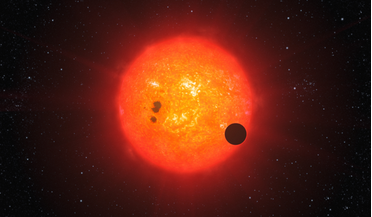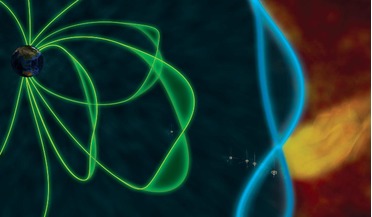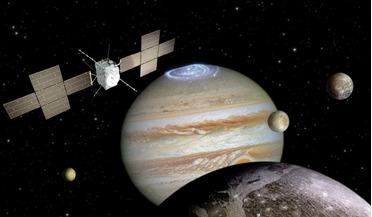 17 February 2020
Earth-sized planet behind unusual star signals say astronomers
17 February 2020
Earth-sized planet behind unusual star signals say astronomers
...same goes for finding planets based on emissions from magnetic fields. Even though terrestrial planets are more commonly found ...than gas giants, they are expected to have much weaker magnetic fields due to their relative size and so are harder to...
 July 2017
Hunting for neutrinos in the ice of Antarctica
July 2017
Hunting for neutrinos in the ice of Antarctica
... in turn is the cause of radio emission. In air, the particle cascades are somewhat larger and affected by the magnetic field of Earth; still, their radio signals are intrinsically similar to the radio signals expected from neutrinos. The...
 December 2019
Human conception and childbirth in space
December 2019
Human conception and childbirth in space
... by a 10 km-thick layer of atmosphere and by the planet’s magnetic field. The further away from Earth, the more dangerous it becomes as, ...your ‘bucket list’? But it may very well be a magnet, too, for couples attracted by the unique opportunity to try...
 13 February 2019
Magnetopause makes Earth one enormous drum
13 February 2019
Magnetopause makes Earth one enormous drum
...scientists have long thought that the abrupt boundary between Earth’s magnetic field and the solar wind – the magnetopause – acted much ...of our planet, the slinky’s two ends represent the Earth’s magnetic poles and they act as the rim or edge of the ...
 October 2017
Exploring Jupiter’s icy moons
October 2017
Exploring Jupiter’s icy moons
... the system of Galilean satellites, and its unique magnetic and plasma interactions with the surrounding Jovian environment. ...investigate the exosphere, and study Ganymede’s intrinsic magnetic field and its interactions with the Jovian magnetosphere. ...
 October 2023
Remote sensing by satellite - People’s Republic of China
October 2023
Remote sensing by satellite - People’s Republic of China
... research of the Earth’s land, sea, gravity and magnetic field. These satellites will form a space-based Earth observation ...relatively high, at about 1000 km altitude, to increase their field of view. Imaging satellites, on the other hand, are ...